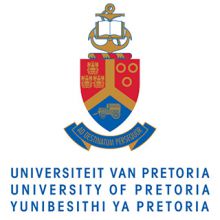A world that shifts its focus towards a commoditised “gig economy” type of education risks leaving just a small set of research-intensive universities that become “bastions of the elite”, a Nobel prizewinner has warned.
Giving a talk at a Nobel Prize Dialogue event hosted by the University of Pretoria, Brian Schmidt, vice-chancellor of the Australian National University, said the rapid rise of technology meant that workers could access education more easily throughout their lives.
But he added that if there was too much of a drift towards this model, then “there is a risk of people bypassing the foundational education they need in favour of short ‘learning as you go’ training”.
“If you learn just what you need to do for a certain job, you may never get the mathematical, or the [written] communication, or critical thinking skills you need to do a job that is much more complex,” he added, saying these were skills that required focus and “thousands of hours” to gain.
Professor Schmidt also said the “current research-led university ecosystem is potentially under threat as research, education and training – now connected – become disconnected from each other”.
“What is the future of this ecosystem in a political world focused on the very short term, favouring training over education and…putting research-led education to the side?” he asked.
“In this world, we may well lose many of our research-intensive universities,” he added, which would “leave only a small set of research universities, which I fear will once again just become the bastion of the elite”.
In a panel discussion following his speech, the winner of the 2011 Nobel Prize in Physics said the risk was that the “gig economy-type attitude to education means you just learn what you need for a given job” and meant that the system could “commoditise education”.
“We could easily see universities being squeezed out of the education model,” he said. “I think there’ll be a big consequence for society [if that happens] because…people won’t get that deep…‘learning to learn’ that will allow them to do much more complex things.”
He added that the involvement of “research-trained people” in teaching allowed education to “bring people up to the cutting edge so you move society forward rather than just getting people into the jobs of today”.
Register to continue
Why register?
- Registration is free and only takes a moment
- Once registered, you can read 3 articles a month
- Sign up for our newsletter
Subscribe
Or subscribe for unlimited access to:
- Unlimited access to news, views, insights & reviews
- Digital editions
- Digital access to THE’s university and college rankings analysis
Already registered or a current subscriber? Login












